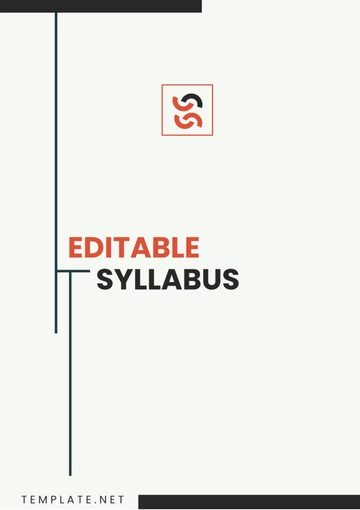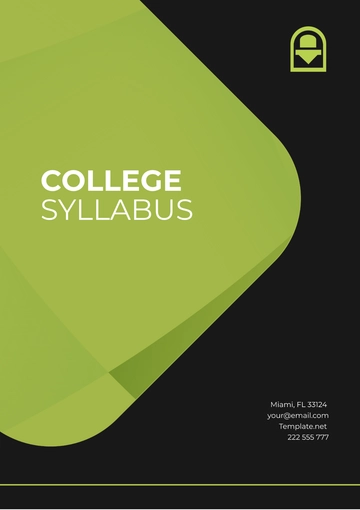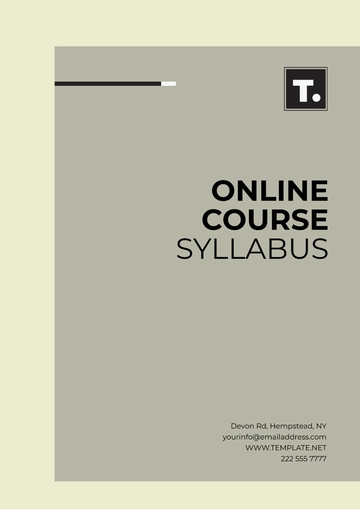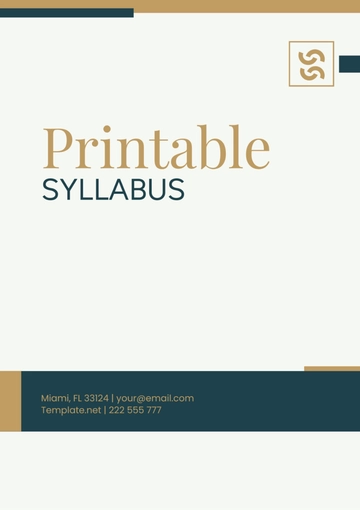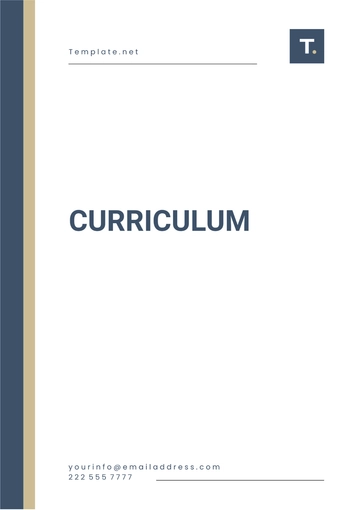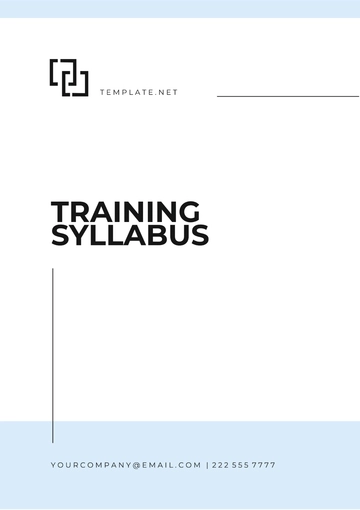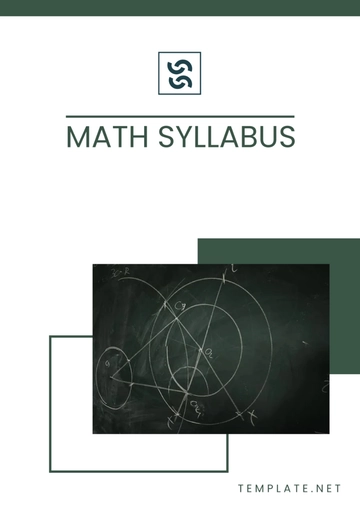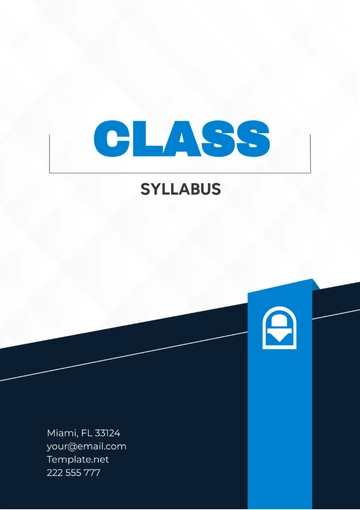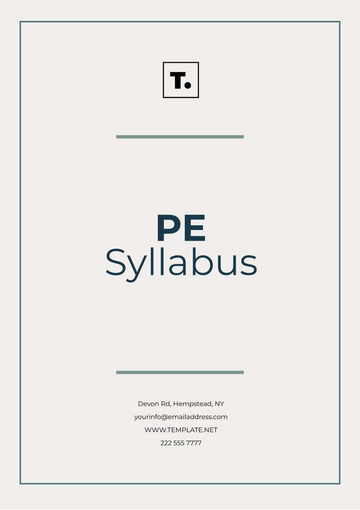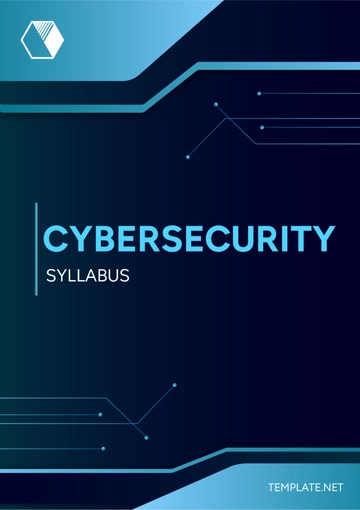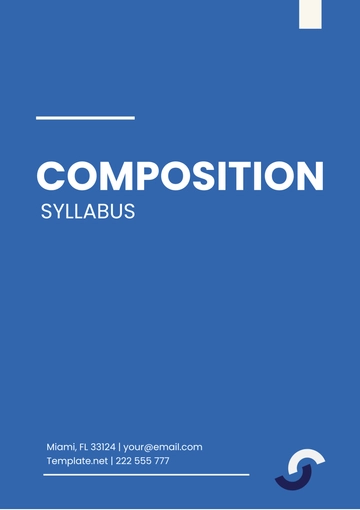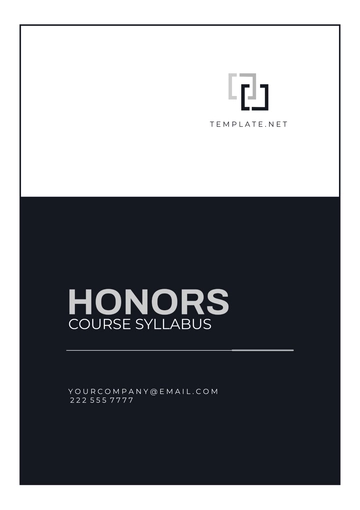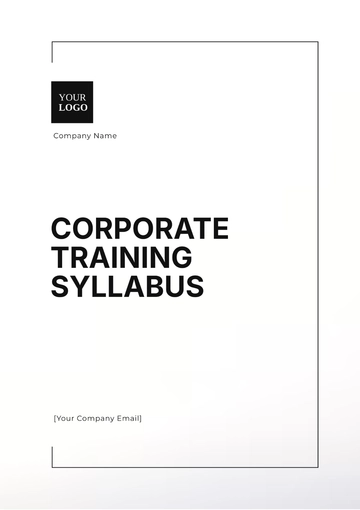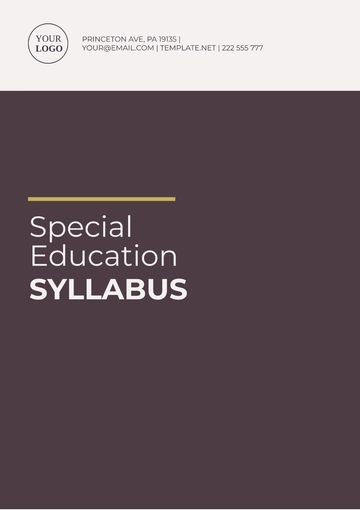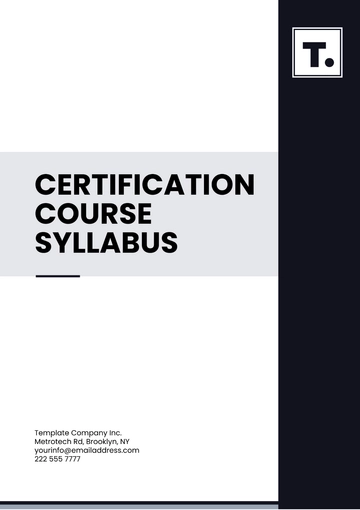Free Criminal Law Syllabus
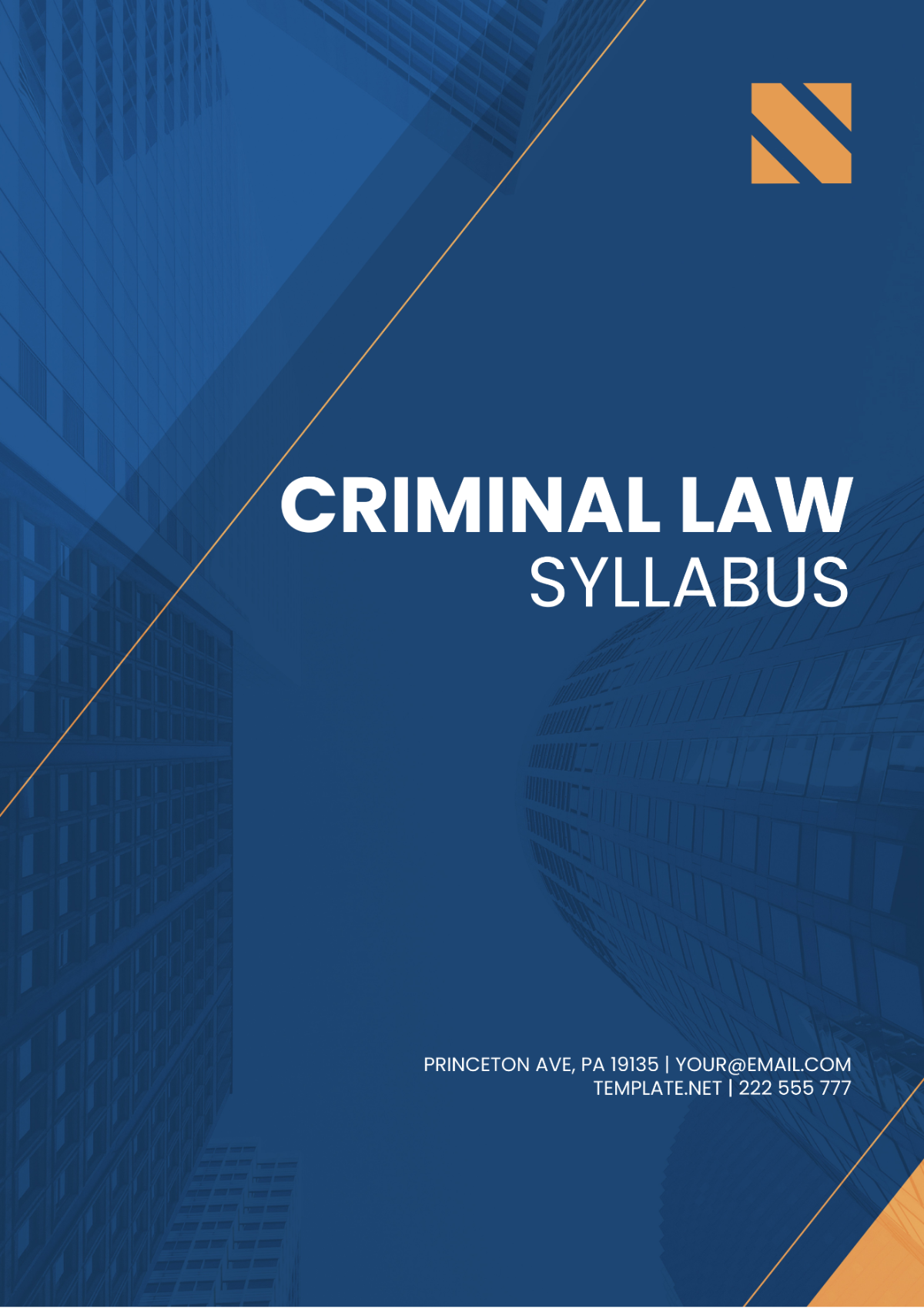
Criminal Law Course
Course Title | [COURSE TITLE] |
Course Code | [COURSE CODE] |
Office Hours | [OFFICE HOURS] |
Class Location | [CLASS LOCATION] |
Class Time | [CLASS TIME] |
Class Duration | [DATE] - [DATE] |
1. Course Description
This particular course has been designed to facilitate a comprehensive investigation into the specific composition and information material of Criminal Law. It is explicitly tailored for those students who either harbor intentions of actively practicing in the field of criminal law in the future or are intrigued by the prospect of acquiring a nuanced and intricate comprehension of how the criminal justice system functions.
2. Instructor Information
Name: [YOUR NAME]
Contact Information: [YOUR EMAIL]
Company Name: [YOUR COMPANAY NAME]
3. Learning Objectives
To provide students with a solid foundation in criminal law principles.
To understand and interpret case laws under criminal law.
To understand the role of a defense and prosecution in a criminal trial.
To develop critical analysis ability of dealing with legal codes and laws.
To create an understanding of different crime classifications and their respective punishments.
4. Course Schedule
Week | Topics Covered | Assignment |
|---|---|---|
1 | Introduction to Criminal Law | A brief essay on the importance of criminal law in society. |
2 | Understanding Penal Laws | Presentation on different penal laws and their applicability. |
3 | Case Law Studies | Analytical report on a selected case law. |
4 | Legal Defenses Analysis | Case study on legal defenses used in criminal law. |
5 | Prosecution Techniques | Analysis and presentation on prosecution tactics in a criminal trial. |
5. Required Reading and Materials
Understanding Criminal Law - Joshua Dressler
Criminal Law Examples & Explanations - Richard G. Singer
Casebook on criminal law - Michael J. Allen, Ian Edwards & Simon Cooper
The Oxford Handbook of Criminal Law - Markus Dirk Dubber & Tatjana Hörnle
Modern Criminal Law: Cases, Comments, Questions - Wayne Lafave
6. Assignments and Assessments
Analytical essays that interpret case laws and legal issues.
Open-book tests that develop understanding of legal codes and their applications.
Classroom presentations to encourage interactive learning.
Case reviews that allow for detailed understanding of real-life court trials.
Final examination that evaluates overall understanding and application of the course content.
7. Course Policy
Consistent and punctual class attendance is expected.
Reading assignments are to be completed before each class.
No late submissions will be accepted for assignments/assessments.
All work submissions should adhere to academic honor polices.
Absence from assessments, unless for medical or personal emergencies, will result in a fail grade for that assessment.
8. Grading Policy
Grade Component | Percentage |
|---|---|
Class Participation | 10% |
Assignments | 30% |
Open-Book Tests | 20% |
Classroom Presentations | 20% |
Final Examination | 20% |
Disclaimer
As a pupil in this course, you presently have in your hands a syllabus. This syllabus is purposely designed as an essential guide that you should follow for the successful navigation and understanding of the course content. It is important, though, that you keep in mind that, while this syllabus may seem firm and definitive, it is not irrevocably set in stone. There could arise certain circumstances which will necessitate a modification or change in the content or structure of the syllabus. Rest assured, though, that no such changes would be made haphazardly or recklessly without prior and adequate warning to you. Before any alterations are made, you will be given sufficient advance notice. This notice is aimed at ensuring that you have ample time to adjust your study plans to align with the changes, ensuring minimal disruption to your learning process.
- 100% Customizable, free editor
- Access 1 Million+ Templates, photo’s & graphics
- Download or share as a template
- Click and replace photos, graphics, text, backgrounds
- Resize, crop, AI write & more
- Access advanced editor
Revamp your Criminal Law syllabus effortlessly with our customizable templates, offered exclusively on Template.net. Crafted with precision and editable through our Ai Editor Tool, these templates streamline your syllabus creation process. Enhance your teaching experience and captivate your students with ease. Explore our range of meticulously designed templates today. Elevate your syllabus with Template.net.

